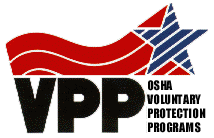For Local Company, Safety Pays Off

Friday, October 07 2011
About twenty years ago, it wasn’t uncommon for workers at the Unisea seafood processing plant to get injured on the job. The safety standards were more relaxed, and there wasn’t a culture of prevention.
“Back in the early nineties, it wasn’t uncommon to have an ambulance here once or twice a week,” says Gregg Bishop, who is the head of safety and environmental compliance.
That’s all changed.
“Now, if one shows up once or twice a year, we’re asking why,” he adds.
Accident rates have dropped 90%, and the company now has the most rigorous safety standards of any seafood company in Alaska. It’s the only one to be a member of the Voluntary Protection Program or VPP, a program jointly managed by the federal and state government that recognizes companies with exceptional safety and health management. It’s also one of just two in Unalaska to have VPP star status – the other one being TelAlaska.
To qualify, companies have to excel in 19 different areas, and they have to show multiple examples of success in each category.
“To even apply took three three-inch notebooks,” says Bishop.
If a company meets the criteria, the government no longer subjects them to random enforcement inspections. Companies also see it as a feather in their cap. Unisea often mentions that it is VPP certified in its company materials, and a giant VPP logo can be seen on the wall going into the galley in the main building.
They first earned the right to put that there in 2000, after five years of trying to achieve merit status. Bishop says that it wasn’t easy to get to that point. On top of all of the upgrades and paperwork, Unisea had to change its business culture. At first, some managers were reluctant to switch things up because of cost and time. But then they started to realize that even though some tasks might take a little bit longer, Unisea wasn’t losing time due to accidents or lower morale. The company saw that promoting a safe workplace actually helped the bottom line.
“It really comes down to a happier, healthier employee is what the bottom line is, which saves or makes us some money,” says Bishop.
Bishop explains that being in a remote area, the costs associated with injuries are especially high. On top of the workplace disruption that accidents cause, companies here also have to pay higher medical bills.
“Here, anything more than a few stitches or a minor broken bone is going to be sent out to be dealt with. You’ve got hotel costs, food, transportation – costs that are not incurred if this had occurred somewhere else,” says Bishop.
Bishop isn’t exactly sure why other seafood companies in the state aren’t VPP participants, but he says it might have something to do with the time and money it takes to start up the program. There are other companies that are showing some interest in joining the program, though. Plants like Westward have talked to Bishop about improving their safety management, and it might not be too long before Unisea loses its status as the only VPP star seafood company.



